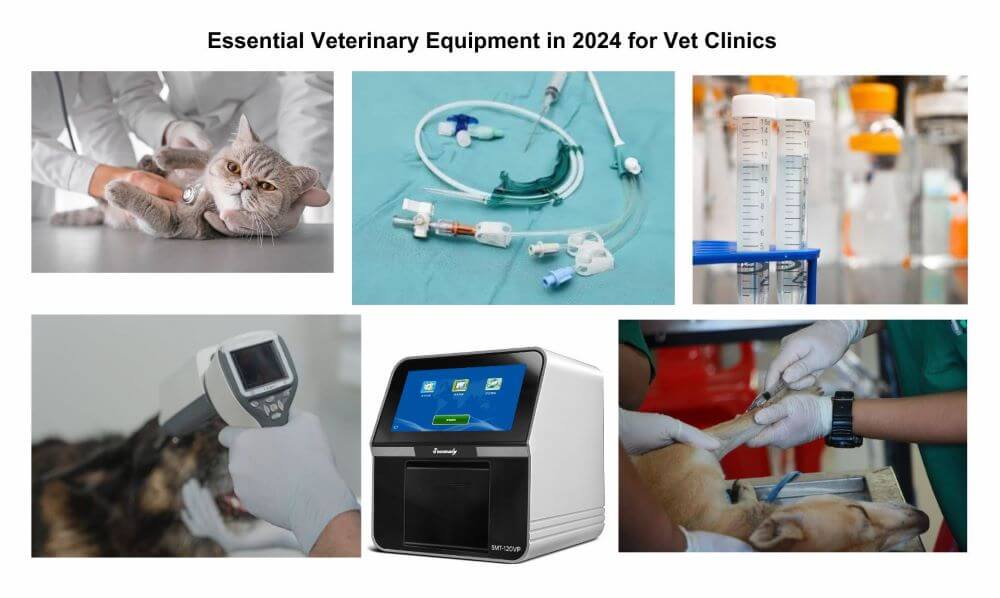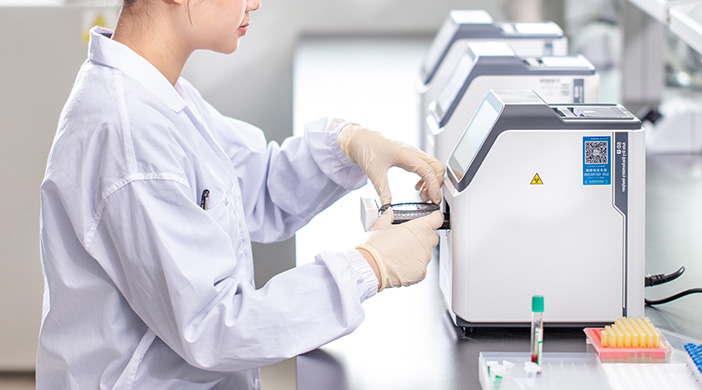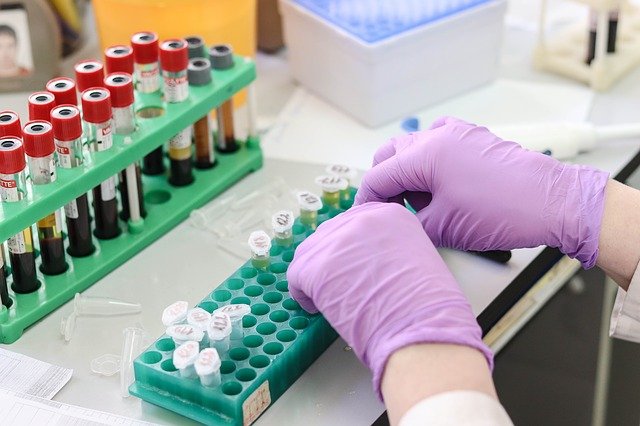release time:2023-12-18 14:59:59

Starting your own vet clinic? First thing on your mind is probably how to select the various veterinary equipment for your needs. To successfully diagnose and treat a myriad of conditions and issues, veterinarians rely on an array of essential instruments. These tools not only enhance the precision of diagnoses but also contribute to the efficiency of various procedures and methodologies. This guide is here to help you figure it all out.
A pivotal tool for comprehensive diagnostics, the plasma and blood chemistry analyzer has become a staple in modern vet clinics. The SMT-120VP, with its fully automatic functionality, requires minimal liquid samples, offering over 24 accurate results. This eliminates the need for highly certified staff and streamlines the diagnostic process.
Included in the arsenal of every veterinarian, absorbent pads play a crucial role in maintaining cleanliness during procedures. Whether cleaning urine and fecal material or preparing for surgery, these pads provide a hygienic environment, ensuring smooth and efficient operations.
With multifaceted benefits, catheters are indispensable for veterinarians dealing with animals facing bladder issues or undergoing surgery. These tools facilitate urine flow, maintain a clean operating table, and contribute to the overall success of surgical procedures.
An essential for initiating surgical procedures, electric razors aid veterinarians in shaving animal fur. Despite some pets' apprehension, special restraints and careful handling ensure a safe and effective shaving process, contributing to optimal results during medical procedures.
Vital in surgical procedures, various types of suture materials help veterinarians stitch wounds and secure incisions. The choice of dissolvable or non-dissolvable materials depends on the nature of the surgery, ensuring effective wound closure and healing.
An indispensable tool for diagnosing conditions like heatstroke and infections, veterinary thermometers provide accurate temperature readings across different animal species. Sanitization practices are crucial when using thermometers between patients to maintain hygiene standards.
Essential for measuring femoral pulses in patients with abnormal heart rates, a wristwatch aids veterinarians in administering appropriate medical interventions based on pulse rates per minute.
In cases of suspected parasite presence, microscopes are invaluable for conducting fecal flotation tests. These instruments enable veterinarians to identify parasites and make precise diagnoses, ensuring effective treatment.
Specially designed for examining the ear canal, otoscope tools use light to provide veterinarians with a clear view. This aids in identifying obstructions, infections, or wax buildup, allowing for accurate assessments and timely interventions.
Beyond cats and dogs, many pets have nails that require trimming. Veterinarians equipped with various nail clippers cater to pet parents who prefer professional nail care. This not only prevents potential injuries but also ensures a painless experience for the pets.
Veterinarians specializing in exotic animals require unique tools, such as an exotic animal anesthesia machine. Adapting small mammal anesthesia machines ensures precise results and optimal breathing support during procedures.

2022-05-24
Point-of-care testing has played a huge role in the medical industry in recent years, and the higher demand for POCT machines and the broader market space suggest that POCT will see more rapid and steady growth in the future. However, there are still challenges on the road to POCT machine development. The following is a summary of some of the challenges encountered on the road to POCT machine development.

2022-04-12
In vitro diagnostic reagents are in vitro diagnostic reagents managed as medical devices, including reagents, kits, calibrators, quality control products and other products used for in vitro testing

2021-12-17
Regular blood tests are one of the most important ways to track your overall health. Getting tested regularly allows you to understand the way your body changes over time and allows you to make informed decisions about your health. But why does a blood test require several tubes of blood to be drawn?